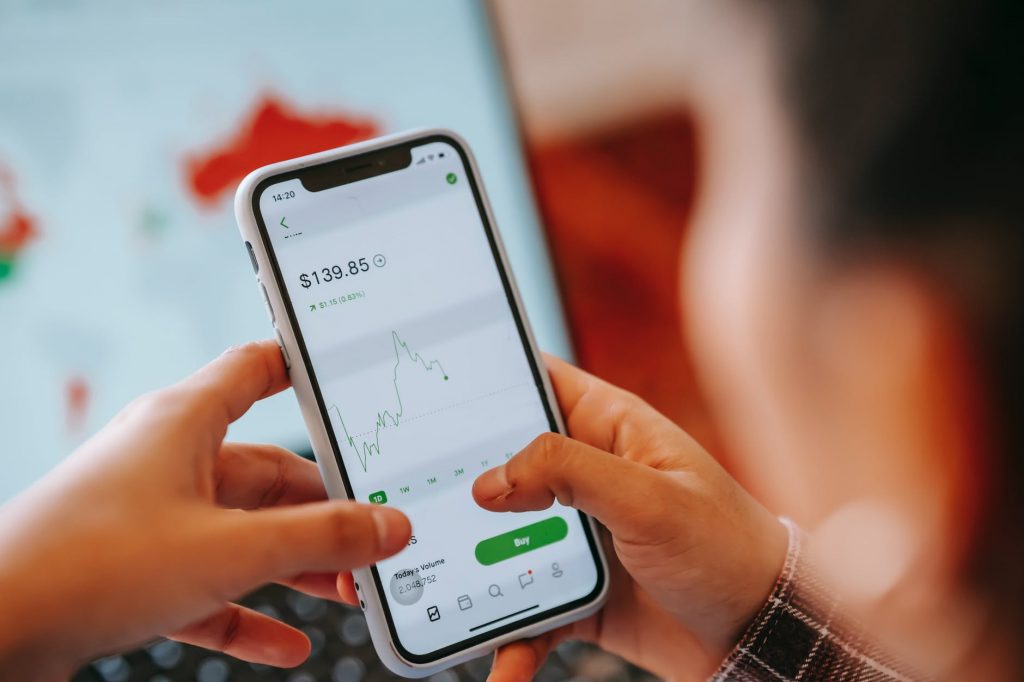Account Types – Swing Trading Accounts Explained
Swing trading is the practice of entering deals that span a few days to several months to benefit from an expected price trend. In this guide, we explain what to look for when opening an online trading account, from tools and fees to leverage and regulatory oversight. We also list the best swing trading accounts in 2025.
What Are Swing Trading Accounts?
A swing trading account is essentially a ledger that holds securities, cash or other assets. It lets you manage your trading portfolio while providing access to the financial markets, such as stocks, forex and crypto, through an integrated desktop or mobile platform.
To open an online trading account, some personal information is usually required, including your ID and contact information. Depending on regulations in your region, you may also need to submit your previous trading experience, financial position and leverage preferences.

How Swing Trading Accounts Work
A swing trading account connects your capital to a trading platform. With this, you can execute transactions and buy securities. So when you make a purchase, your order is effectively sent to the stock market for processing and you receive the assets upon execution. Consequently, your bank account is debited in proportion.
When you make a sale, the process works in reverse: the asset gets sold back to the stock market, and you receive money in exchange. To retrieve funds from your swing trading account, you must request a withdrawal from your broker.
Types of Trading Accounts
Swing trading accounts often have different levels with better conditions as you move up the tiers, such as lower fees, extra features, an account manager, or even free tickets to events. The benefits vary from broker to broker.
The most popular type of trading accounts are:
Retail Accounts
These are designed for retail traders, often with no experience in the financial markets. Retail accounts are available at most brokers and come with learning resources like courses, news articles and training events. Importantly, overnight holding fees, spreads and commission will vary between providers. Trading tools can differ too, some brands support automated trading and hedging while others offer bespoke signals and SMS alerts services.
Another key consideration for retail traders is the leverage on offer. The best accounts let you increase your position size in return for a small capital outlay. For example, leverage of 1:30 means that if you deposit $10, you can trade with $300. Importantly, leverage rates are limited for retail traders in line with regulatory requirements. As a result, most top brokers in Europe and beyond cap the leverage available to retail investors to 1:30.
To get started, choose a broker, open an account and deposit funds. After that, you can immediately place deals – buying and selling the assets available on the trading platform, from forex to stocks and cryptocurrencies.
Mini Accounts
Mini accounts are a good option for beginner swing traders. They essentially allow investors to trade in small quantities, known as micro lots. A mini lot is usually a tenth of the size of a conventional 100,000 units. Aside from smaller transaction sizes, trading conditions and account features are usually the same as standard retail trading solutions.
Cash Accounts
These accounts only let traders use the funds they have deposited. This means leverage and margin trading is not available. This also makes them popular with beginner investors who are still learning how to budget and manage risk.
Apart from this, cash accounts offer many of the same tools and trading conditions as normal retail trading accounts.
Funded Accounts
Funded accounts, also known as proprietary accounts, allow qualified traders to invest on behalf a firm. A company essentially gives the trader capital to invest on their behalf, taking a cut in the proceeds.
But whilst novices may like the sound of a fully funded trading account, most providers will expect you to demonstrate your ability to make money from the financial markets before they hand over their cash.
Electronic Communications Networks (ECN) Accounts
Experienced investors often use ECN accounts to secure the best trading conditions. An ECN account enables buyers and sellers to transact directly without the intervention of a middleman, by leveraging a central liquidity pool. The result is typically zero-pip spreads in return for an increased commission charge.
But while ECN systems provide more transparency and liquidity, minimum deposit requirements can exceed $1,000.
Professional Accounts
Professional accounts are usually only available to experienced traders with a proven track record and portfolios exceeding $500k. Other requirements can include the use of leveraged derivates in significant sizes or for the investor to have worked in a professional position for at least a year.
Professional accounts are designed for veteran traders and those looking to trade in large quantities. In return for higher volumes, professional accounts typically come with cash rebates, lower margins, access to advanced analytics, plus hands-on account managers. Promotions and bonuses may also be offered.
Note, the screening process for a professional trading account is usually longer.
Managed Trading Accounts
These accounts are held by an investor but managed by a third party. The account holder might be an institution or a retail forex investor but they hire a professional money manager to handle trading activities. Importantly, this type of account often has six figure minimum investments and high management fees. As a result, we have found that robo trading accounts are often cheaper and a good alternative to managed accounts for smaller portfolios.
Percentage Allocation Management Module (PAMM) Accounts
The accounts are designed for investors who are short on time and want to invest in popular markets like forex. They essentially pool money from multiple investors before handing it over to skilled fund managers who make the trading decisions.
Basically, these accounts allow you to earn with minimum effort. With that said, profits depend on the money manager’s performance and PAMM accounts could still lose you capital. We recommend opening an account with a broker and manager that mirrors your risk appetite. It’s also worth checking out online reviews before signing up.
Demo Accounts
Brokers often offer a free demo account where you can practice swing trading, experiment with different forex techniques and acquire a feel for the platform’s interface without putting your own money at risk. Even experienced investors use paper trading accounts to test-drive strategies.
Importantly, they also tend to mirror trading conditions found in real-money accounts. As a result, investors often use demo accounts to trial a particular broker before signing up for a live account.
Pricing
Pricing structures vary between providers so it’s important to do your research before opening a trading account. Even though most swing trading accounts are free, some charge a monthly subscription, often a percentage of your balance, for example, 0.5%. Other brands will charge for deposits and withdrawals, alongside overnight fees.
Another key consideration is the minimum and maximum deposit and withdrawal limits. Beginner swing traders will likely want a provider with a low, $100 minimum sign-up requirement.

Pros
Advantages of swing trading accounts include:
- Promotions – Some forex and stock brokers offer a free sign-up deposit bonus, trading competitions and cash rebates
- Mobile apps – The best swing trading accounts come with a free a mobile app so you can manage your portfolio on the go
- Taxes – With some accounts, you can download your trading history into a straightforward Excel format while tips and blogs on tax requirements are available on broker websites
- Ease of use – Retail swing trading accounts can often be created in a few minutes, requiring a few personal and banking details. Following which, you can login and start trading
- Available internationally – You can open online swing trading accounts in most countries, including the USA, UK, Canada, India, Singapore, France, Germany and Japan
- Comparison forums – Many websites, like ours, offer reviews of the top swing trading accounts and brokers. This can help you find the right trading account for your needs
Cons
Downsides to registering for a swing trading account include:
- Restrictions – Because they mainly cater to beginners, many accounts have to comply with various regulations that impact trading conditions, from leverage limits to negative balance protection
- Fees – Managed swing trading accounts, in particular, can have high maintenance fees. Other options may come with wide spreads, high commissions and steep rollover fees. As a result, it’s worth carefully comparing charges before signing up with a provider
- Professional perks – Finally, advanced features and higher leverage are usually only available to professional traders, and unfortunately, most retail traders won’t meet qualifying criteria
In Conclusion
There are many different swing trading accounts available in 2025. But ultimately, there is no single best swing trading account as this will depend on your individual requirements, skill level and more. With that in mind, we recommend starting with a free demo account to get familiar with a particular broker and their trading conditions.
FAQ
What Are The Top Swing Trading Account Brokers?
What Are The Best Swing Trading Twitter Accounts?
Some of the most popular social media accounts with swing trading tips include @steve_hanke, @jimcramer, @paulkrugman, @ZeroHedge, @TheStalwart, @ritholtz, and @ASKTRADERS1.
Can You Swing Trade With A Cash Account?
Yes – swing trading is available through cash accounts. These solutions let you make multiple purchases using the balance in your account. However, importantly, you cannot utilize the proceeds from the sale of an asset until the settlement term expires and profits have been added to your account.
What Type Of Forex Accounts Are Available To Swing Traders?
Popular FX swing trading account types include cash and margin, managed and ECN, plus free demo accounts for novices. Islamic-friendly solutions and micro-lot accounts are also common. Forex swing trading accounts can be opened in most major trading hubs, including the US, UK, South Africa, France and the Netherlands, among others.
Can You Swing Trade In A TFSA Account?
A tax-free savings account (TFSA) is available in Canada and offers tax advantages. When you withdraw money from a TFSA, you don’t usually have to pay taxes, including capital gains and dividends. Unfortunately, these accounts are usually only available to traders in Canada with no login availability for traders worldwide.
